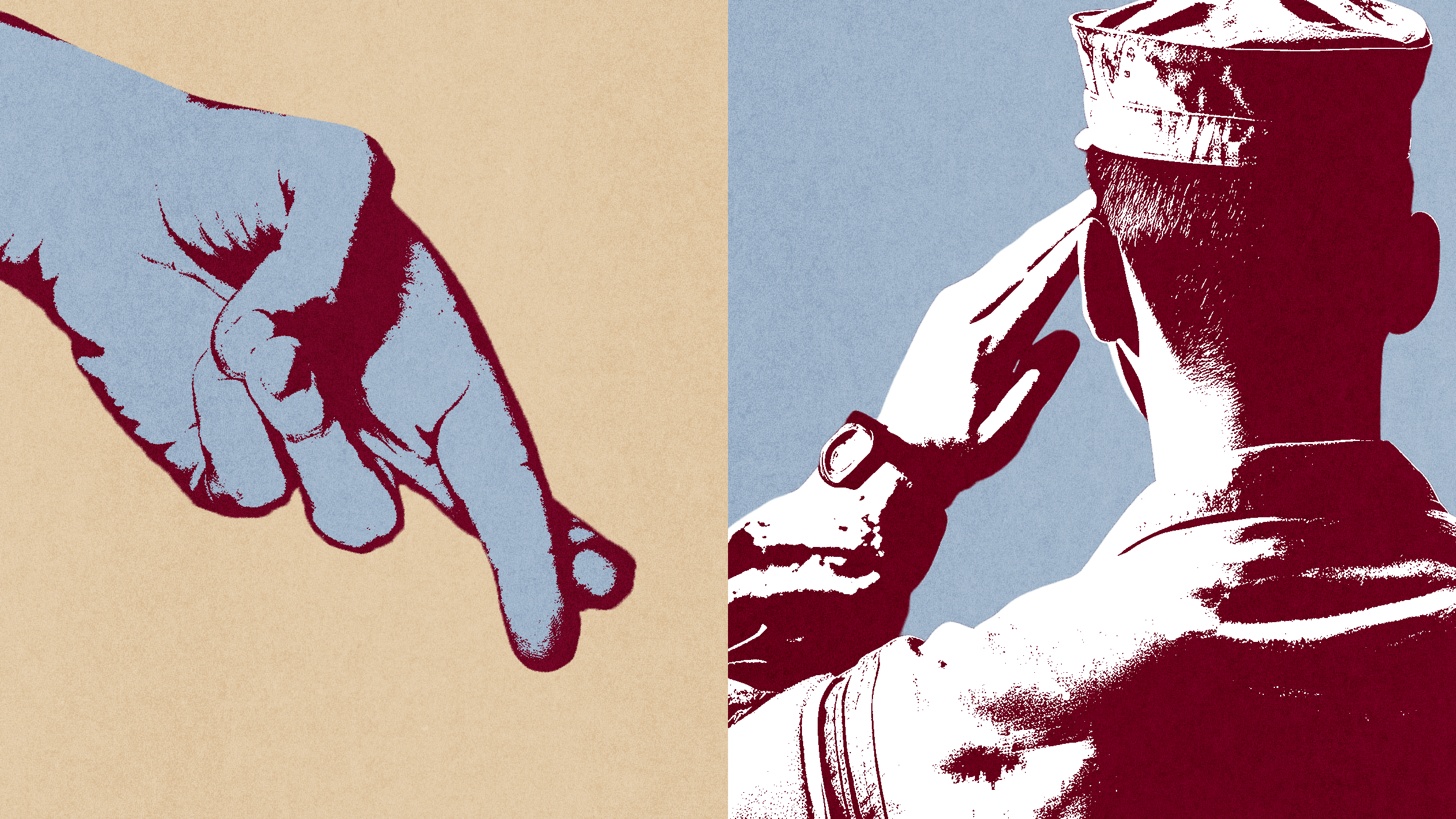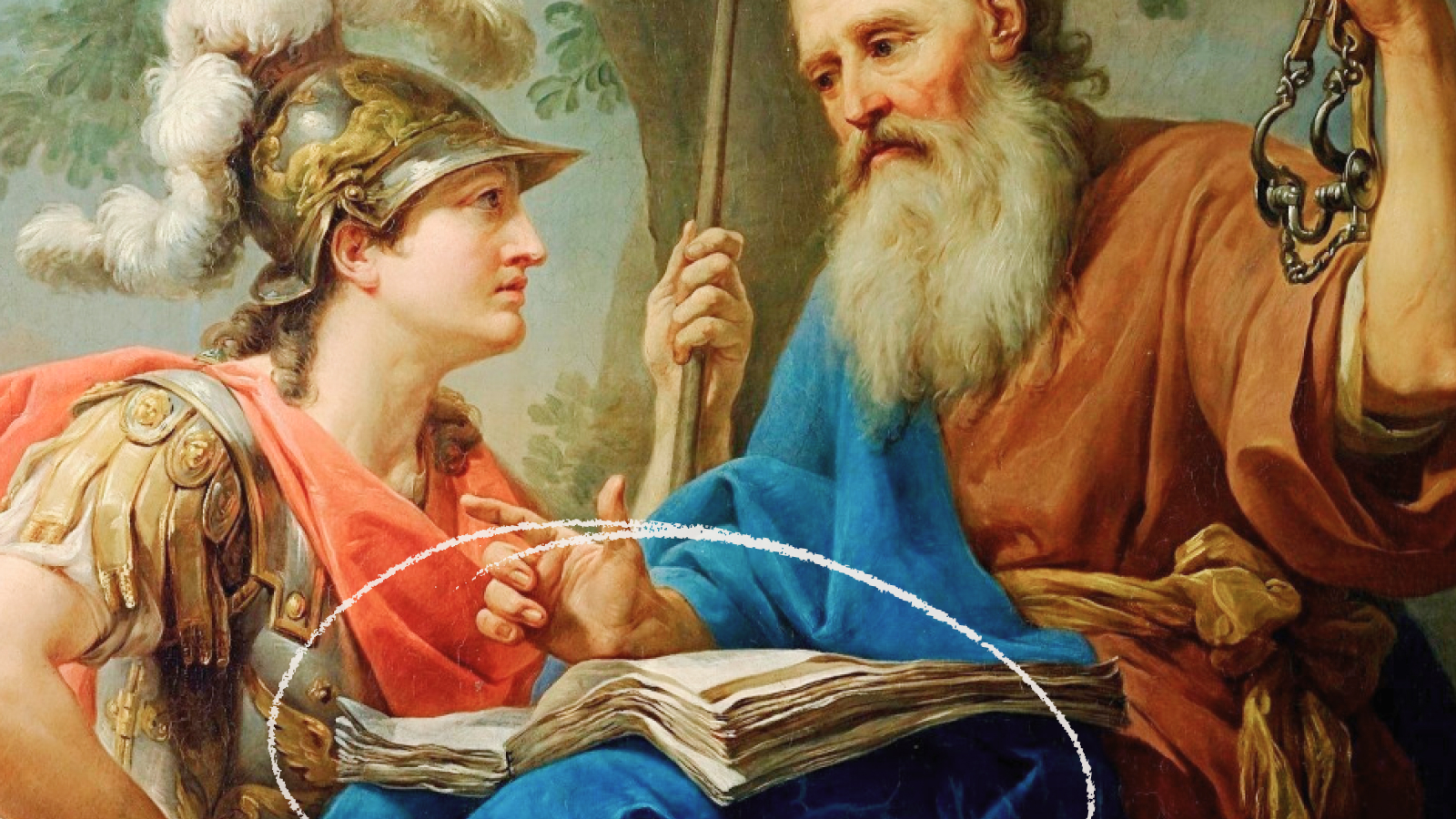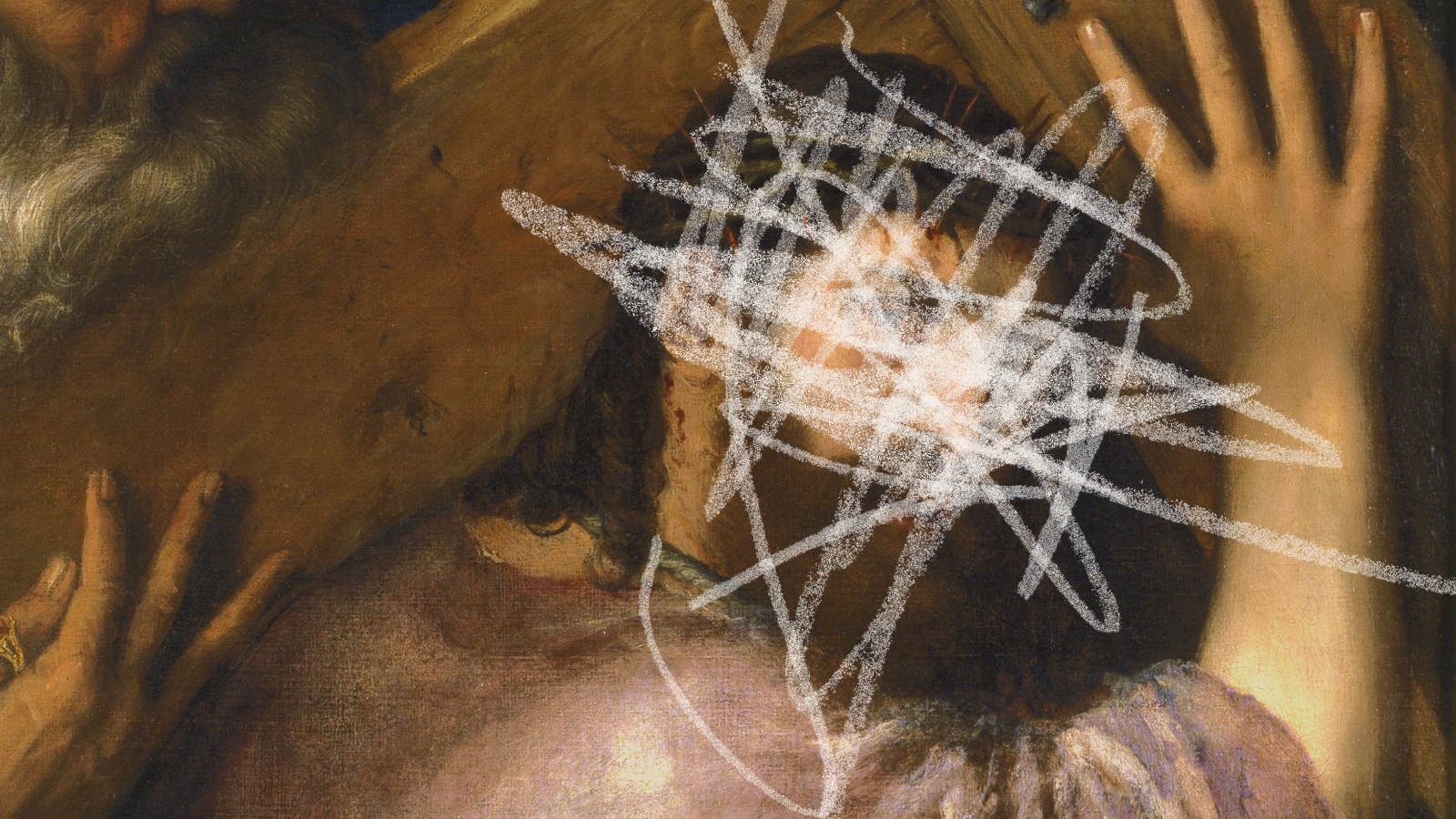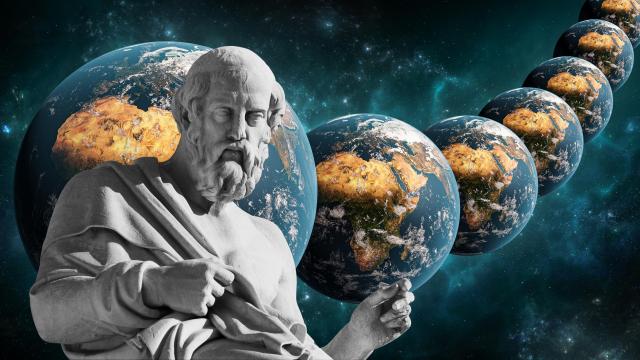Classical liberalism and three of its founders: explained
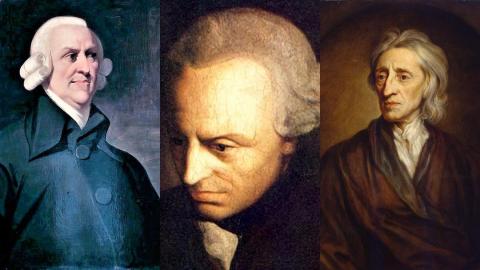
Public Domain
- Liberalism, for all its influence, is only a few hundred years old.
- Many great philosophers formulated the ideology, but their arugments often don’t make it into popular discourse.
- While classical liberalism endures, modern liberalism dominates current political discussions.
Over the past several hundred years, one moral and political philosophy has left a greater mark on the world than any other. Often opposed by other ideologies, it has defeated all those which sought to banish it to the dustbin of history. This philosophy is known as liberalism and continues to have a tremendous influence on modern life.
Somehow, despite its prevalence, a surprising number of people couldn’t begin to explain what the philosophy they ostensibly support is or what the arguments in support of it are. To correct this, let’s take a look at the philosophy and the ideas and arguments of some of its founders.
Before we begin, I should say that today we are focusing on classical liberalism; it differs from the term “liberalism” as Americans tend to use it and has some significant points of disagreement with its modern decedent. What those are and why they exist are the subject for another time.
Liberalism begins with the assumption that people are or should be free and that restrictions on their liberty must be justified. Liberal thinkers debate the proper role of the state and often agree that it is a limited one which would result in very few restrictions beyond those needed to secure the rights of everybody living under its jurisdiction. When this was first proposed, during an era of absolute monarchy and nearly unchecked power of institutions over individuals, it was a radical claim.
For classical liberals, “liberty” usually means what might be called “negative liberty” today. These liberties are “negative” in the sense that they can be seen as “freedoms from interference.” This contrasts with “positive” liberties, which are “freedoms to do” or the capacities to accomplish something. Classical liberalism is very concerned with the right of people to be left alone to live their own lives.
This means a liberal society will let people decide things like their own religion, their idea of what constitutes a good life, and what organizations they want to be a part of, among other things. Importantly, since cohesion is not applied in these areas of choice, people are free to join a church or civic group when it suits them and leave when it suits them and face no government reprisals for it. Liberal theorists typically advocate for tolerance of others to assure that these freedoms of choice are applied to everyone.
Classical liberals also tended to argue that the economy, or some version of it, existed before or independently of the state. As a result, they maintain that the right to private property is natural and should be fairly unlimited. For some thinkers, this also ties into ideas of independence from external authority, as a person with enough property to be more or less financially self-sufficient would be able to tend to themselves and select when to engage with institutions that could help them but might infringe on their rights.
Let’s take a closer look at three of the more prominent classical liberal philosophers, what they thought, and why they thought it.
Considered the Father of Liberalism, John Locke wrote two treatises on government attacking absolute monarchy and supporting a more limited view of government. While his conception of liberalism is explicitly based on a theology many people would dispute, his reasoning has been applied in secular conditions to great success.
Like many other thinkers at the time, Locke turned to an idea of what life was like before the existence of governments, known as the state of nature, to make his arguments. For Locke, people in the state of nature were free within the boundaries of “natural law” and generally get along. However, in this condition, there is nobody to turn to if somebody else violates your rights, like if they steal from you, and no neutral arbitrator to turn to if you and somebody else have a dispute.
Locke argues that these issues eventually drive people to want to create a state to protect people’s rights by enforcing natural law and acting as a neutral arbitrator when people have disputes.
The state he envisions people would create in this situation is a minimal one that focuses almost exclusively on protecting people’s natural rights of “life, liberty, and property.” It does not try to determine how people live their lives within the confines of natural law. It tolerates various religions and worldviews- since to promote one above all others would go beyond its prerogatives. It cannot operate in ways contrary to the rule of law, features a representative legislature with majority rule, the separation of powers, and is founded by people explicitly consenting to be governed this way.
His defense of private property is noteworthy. He argues that some variation of the economy exists in the state of nature and that nobody would willingly create a state if it were going to take away their property.
However, he holds that property can only be held if it will be used before it spoils, was acquired by the labor of the person who owns it, and if after acquiring it there is still enough of the resources it is made of left in the commons for the next person. What limits these principles place on a person going into Sherwood Forest in 1690 to cut down a tree to make lumber with and a person trying to start a business today is still debated.
A German philosopher, Kant is widely considered one of the most influential thinkers of all time. He worked in every area of philosophy there was to work in, political philosophy among them.
Kant based his liberalism on the idea of freedom from other people’s choices and universal rationality. He maintains that all people have a fundamental dignity as rational and moral beings. This both obligates us to act accordingly and to respect the dignity of others. From this starting point, he argues that the state should exist to assure that individuals enjoy “Freedom, insofar as it can coexist with the freedom of every other in accordance with a universal law.”
This freedom is limited by what is consistent with reason but is wide-ranging; a large number of liberties are required for a rational, autonomous person to be able to utilize those capacities. These liberties include the freedom of speech, religion, and the right to pursue happiness in any way a person wants to, so long as it is consistent with everybody else being able to do the same. Anything less than this conflicts with a person’s moral autonomy and borders on treating them as a child.
He further argues that no state should make a law that “a whole people could not possibly give its consent to.” That means things like laws granting privileges to one group of people and not others would be prohibited, as no rational group would sign a contract giving them the short end of the stick. It allows for other things, such as a generally applied tax of debatable value, as a rational person could consent to such a thing if the arguments for it were sound.
While he thought that an elected representative government was the best option for providing these protections, but didn’t rule out other models. He also strongly asserted the necessity of constitutional governance.
While most interpretations of Kant maintain that his idea of freedom is “negative,” there is some ambiguity in his writings which led some commentators to suggest he is open to ideas of positive liberty as well. Given his reliance on and admiration for some of Jean-Jacques Rousseau’s ideas, this idea is not absurd, though it is difficult to prove.
While better known as an economist, Adam Smith was also a philosopher who considered the problems of society as a whole. Between how important his economics are to classical liberalism and the nuanced approach of his political philosophy, Smith remains an essential figure in the liberal tradition.
Unlike some of the other thinkers we’re looking at, Smith thought it was a legitimate goal of government to help the poor and promoting the virtue of society. He went so far as to say:
“…[the] civil magistrate is entrusted with the power not only of … restraining injustice, but of promoting the prosperity of the commonwealth, by establishing good discipline, and by discouraging every sort of vice and impropriety; he may prescribe rules, therefore, which not only prohibit mutual injuries among fellow-citizens, but command mutual good offices to a certain degree.”
However, this isn’t a call for a moralizing government. It is a call for the government to do less than it was at the time.
As he thought with economics, Smith thought society would work best when people were generally left alone to handle things themselves. He argues that people can only develop virtue on their own; if they are only doing it because the government is telling them to do so, they aren’t actually virtuous. Additionally, he didn’t think that politicians would be very good at promoting virtue or prosperity, suggesting that they can handle issues like defense and criminal justice while leaving other tasks to individuals with better knowledge of the conditions on the ground than far off bureaucrats.
His economics, based on the idea that markets often provide the best possible outcomes when left alone, became the basis for the classical liberal stance on capitalism. While he wasn’t quite as opposed to government intervention as many people think, his arguments in favor of fewer restrictions on business meshed well with other liberal ideas on property and freedom.
This overall approach is important in how it differs from our two other thinkers. While Locke and Kant both appeal to natural rights or individual autonomy to support their ideas on liberty, Smith leans on arguments showing how a society that values liberty will be a better place to live in than one that does not, in addition to it being morally defensible.
While few people will want to base their freedom on the idea that it is expedient, the appeal to tangible benefits has proven to be one of the more convincing arguments for liberty.
Many philosophers, arguably starting with John Stuart Mill, continued to work within the liberal tradition but considered the new problems of industrial society, market failures, and what happens when there is no longer a “nature” to take resources from like there was in 1690. Their work, combined with critiques of liberalism from other ideologies, notably socialism and conservatism, led to an evolution of liberal philosophy into the modern version we see today.
Despite some elements of liberal thought dating back to ancient times, the political philosophy of classical liberalism, which changed the world by elevating the rights of man and continues to influence our thinking even as we move past it, is surprisingly young. It achieved a lot in its few hundred years of existence, and its arguments for liberty, equality, democracy, and the right to get on with our lives and business continue to resonate today.
While most people may not be classical liberals anymore, taking time to consider the philosophy is an exercise that we can all benefit from.

